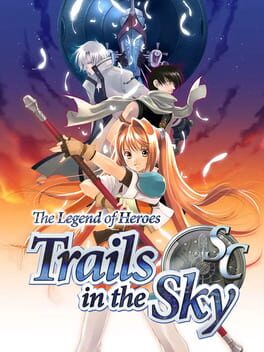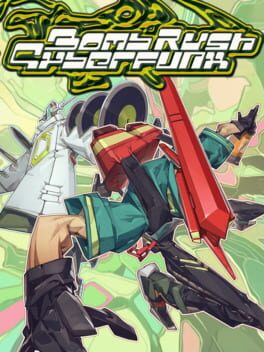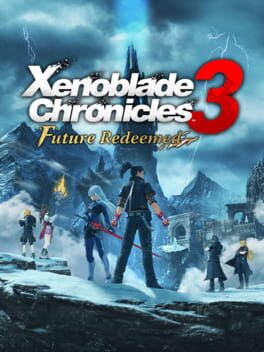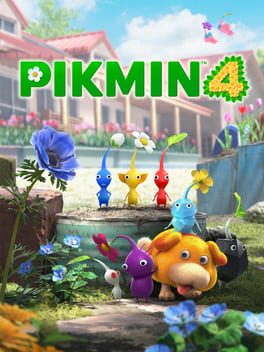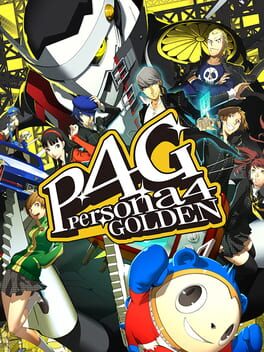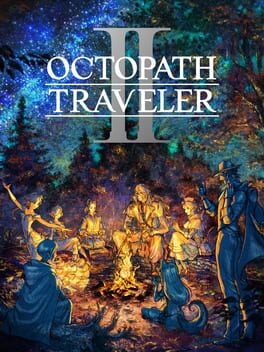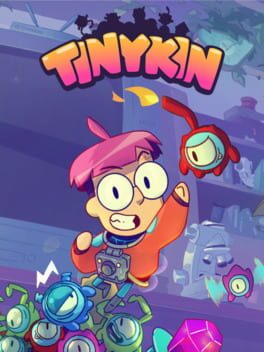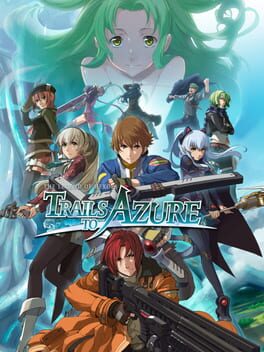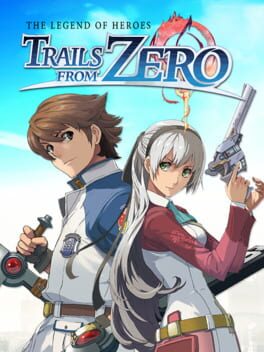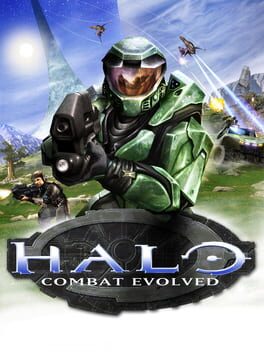Mudo146
I finally jumped back into Trails in the Sky after beating the first game in late 2019 or early 2020. I have to say that I'm glad I did. The writing is just as good as the first game, with the story building off of the first game's cliffhanger. Estelle's quest to find Joshua has to take a backseat to helping the different regions of Liberl, but it's always there at least. And it's great to revisit all the regions and locales as well as all the characters we met there.
A big change for me this time was that I ignored the people who say you need to read every NPC dialogue after every plot point or else you're missing the game. I engaged when I wanted to and didn't when I wanted to just plow through with the story and that helped me avoid burnout and love every chapter of this game. The way the story comes to a head is worth all the hours I put into both games.
The battle system is exactly the same as the first game, but it's cool that it starts you all at level 40. It's a serviceable system, with the orbments tuning (like materia) being a fun way to customize the party. Thank god for the devs putting in the turbo option though, which makes the entire game a breeze to walk through instead of a slog of slow battle animations.
A super fun JRPG that is totally worth the time investment. I loved it in spite of some of its anime tropes.
A big change for me this time was that I ignored the people who say you need to read every NPC dialogue after every plot point or else you're missing the game. I engaged when I wanted to and didn't when I wanted to just plow through with the story and that helped me avoid burnout and love every chapter of this game. The way the story comes to a head is worth all the hours I put into both games.
The battle system is exactly the same as the first game, but it's cool that it starts you all at level 40. It's a serviceable system, with the orbments tuning (like materia) being a fun way to customize the party. Thank god for the devs putting in the turbo option though, which makes the entire game a breeze to walk through instead of a slog of slow battle animations.
A super fun JRPG that is totally worth the time investment. I loved it in spite of some of its anime tropes.
2023
Just an absolute blast of a game. A faithful homage to Jet Set Radio, even with Hideki Naganuma coming back to compose a few songs. I had a great time moving through the city and was always looking forward to what the next area was. It was a shame that the three ride styles (inline skates, skateboard, and BMX) didn't have any differences except that there were some doors that required you to be on a bike for no real reason. I was a bit surprised that the story was as decent as it was to be honest because I don't remember any of the story from Jet Set Radio. It wasn't the world's greatest story, but I still really enjoyed it.
I actually started doing some achievement hunting for this game because I enjoyed the world and music so much, and that means blanketing a zone with all unique grafitti tags and doing score attacks.
This game is so easy to recommend to anyone just looking to jam out and enjoy some easygoing Dreamcast style gaming.
I actually started doing some achievement hunting for this game because I enjoyed the world and music so much, and that means blanketing a zone with all unique grafitti tags and doing score attacks.
This game is so easy to recommend to anyone just looking to jam out and enjoy some easygoing Dreamcast style gaming.
This review contains spoilers
Future Redeemed was an unexpectedly early surprise in April. This DLC was basically a full on old-school expansion, clocking in around 30-ish hours for me and my semi-completionist habits. First and foremost, this was the same level of polish and detail that I've come to love from Xenoblade Chronicles (a continuing and surprising trend with the DLC expansions).
This expansion (which is what I'm going to call it from here on out) delivered all the XC fan service that we expected from the base game: Shulk and Rex, Colony 9, and Trinity Processor nonsense. And the music, continuing the trend of the expansion music being jazzier, delivered fully. Furthermore, the combat and party management was like a constrained (and thus more manageable) take on the systems from the base game.
I loved the inclusion of "map completion" showing you the different activities or unique monsters that remain in an area. It made it so satisfying to hunt down all the different points on the map and encouraged you even more to explore the big, beautiful maps that Monolith Soft are now known for making. I didn't finish fighting all the superbosses, but I did a LOT more than I normally would.
This is right up there with Xenoblade Chronicles 2: Torna - The Golden Country as one of the best Xenoblade Chronicles experiences.
Honestly, Future Redeemed was a top-tier game and it wasn't even its own release.
This expansion (which is what I'm going to call it from here on out) delivered all the XC fan service that we expected from the base game: Shulk and Rex, Colony 9, and Trinity Processor nonsense. And the music, continuing the trend of the expansion music being jazzier, delivered fully. Furthermore, the combat and party management was like a constrained (and thus more manageable) take on the systems from the base game.
I loved the inclusion of "map completion" showing you the different activities or unique monsters that remain in an area. It made it so satisfying to hunt down all the different points on the map and encouraged you even more to explore the big, beautiful maps that Monolith Soft are now known for making. I didn't finish fighting all the superbosses, but I did a LOT more than I normally would.
This is right up there with Xenoblade Chronicles 2: Torna - The Golden Country as one of the best Xenoblade Chronicles experiences.
Honestly, Future Redeemed was a top-tier game and it wasn't even its own release.
2023
This review contains spoilers
FINALLY a new Pikmin game. And I was ready and here for it. Very possibly the best Pikmin game. Large and expansive with even a (small) twist or two in the story. Moving the camera perspective to be more third-person than top-down was also a great call for making you understand the scale of the environments (that are bigger and more beautiful than ever). This game truly has everything you could want out of a new Pikmin campaign including some legitimately tough (optional) endgame challenges, 2 new Pikmin types (ice and ghost), and even a smaller scale re-imagining of the original game with Olimar collecting his ship parts that you can play and replay within the campaign.
My ONLY real complaint with this game is the multiplayer offerings. Campaign co-op is essentially non-existent. Also, Dandori Battles are, in my opinion, a bit less interesting than Bingo Battles. They're still fun and allow for a bit more customization (selecting what type of Pikmin will be used, for example), but it feels more stagnant. There are also fewer stages than there were for Bingo Battles, which is disappointing.
If these are my only problems with Pikmin 4, then this game did well.
My ONLY real complaint with this game is the multiplayer offerings. Campaign co-op is essentially non-existent. Also, Dandori Battles are, in my opinion, a bit less interesting than Bingo Battles. They're still fun and allow for a bit more customization (selecting what type of Pikmin will be used, for example), but it feels more stagnant. There are also fewer stages than there were for Bingo Battles, which is disappointing.
If these are my only problems with Pikmin 4, then this game did well.
2020
What can I say here? It's a Persona game. It's a PS Vita version of a PS2 game that's (finally) re-released on modern consoles. I loved Persona 5. It got me into the series. That being said, I think Persona 4 Golden might be my favorite Persona game I've played so far. The pacing is much better than 5 in terms of the plot (some specific conversations can still drag on as everyone says their piece). I loved the sleepy town of Inaba and its vibes. I also absolutely loved the main cast (EXCEPT for the poorly aged attitude/reactions of Yosuke towards the mere idea of Kanji being gay).
Obviously, the gameplay itself is weaker when compared to Persona 5, but the simpler dungeon design also allowed me to fly through a lot of them instead of having to dedicate days to it (which, to be fair, is part of the charm of the Persona formula in my opinion).
I accidentally didn't get the "true" ending the first time around and had to load an old save before the "Golden" dungeon to go back and get it. After flying through the game in about a month, this caused me to take a 10 month break before coming back to finish it "properly" but man was it worth it. If nothing else, it gave me a bit of extra time and new content with the investigation team and, so far, my favorite Persona friend group.
Now, if you'll excuse me, I need to go daydream of living in Inaba and hanging out with my friends.
Obviously, the gameplay itself is weaker when compared to Persona 5, but the simpler dungeon design also allowed me to fly through a lot of them instead of having to dedicate days to it (which, to be fair, is part of the charm of the Persona formula in my opinion).
I accidentally didn't get the "true" ending the first time around and had to load an old save before the "Golden" dungeon to go back and get it. After flying through the game in about a month, this caused me to take a 10 month break before coming back to finish it "properly" but man was it worth it. If nothing else, it gave me a bit of extra time and new content with the investigation team and, so far, my favorite Persona friend group.
Now, if you'll excuse me, I need to go daydream of living in Inaba and hanging out with my friends.
2023
I enjoyed the first game fine enough, but Octopath Traveler II manages to take everything about the first game that worked and improve upon it while dropping everything that didn't. Lowered encounter rate, day/night cycle, better stories and more consistent (and present) voice acting, auto progress for voiced scenes, better side quests, more interesting and varied towns and environments, improved upon "hidden" job classes, latent powers, the MUSIC! The list goes on.
What else can I say? It's the first game but so much better with much better stories, intertwined stories, better character moments, and an amazing climax where all the stories tie together into one last big bad.
I can't necessarily recommend the first game, but this is a must-play for old-school JRPG fans. Easily one of my games of the year and a soundtrack I'll be listening to for years.
What else can I say? It's the first game but so much better with much better stories, intertwined stories, better character moments, and an amazing climax where all the stories tie together into one last big bad.
I can't necessarily recommend the first game, but this is a must-play for old-school JRPG fans. Easily one of my games of the year and a soundtrack I'll be listening to for years.
2022
A fun little "Pikmin-like" where you're running around with all your helpers trying to pick stuff up. However, this is much more of a 3D explorer / collect-a-thon than Pikmin. You're exploring a huge abandoned human house in this game and I'm already a bit of a sucker for the "normal place but you're small" trope ever since the "rat maps" in Unreal Tournament 2004. There isn't any combat to lose Tinykin to, but you do start with 0 Tinykin of any kind whenever you enter a new room of the house which stops you from just bulldozing your way through a new room and allows for you to feel a new sense of progression as you hunt down all the Tinykin to add to your posse. Not the longest game nor the hardest (except for some of those time attack races), but certainly a fun game to go through with a lot of charming characters.
This review contains spoilers
Trails to Azure is an amazing conclusion to the Crossbell arc let down by a needlessly frustrating final boss. Returning to Crossbell City and the SSS was an absolute joy, one that was only enhanced by the main cast additions of Noel Seeker and Wazy Hemisphere. This game did away with Joshua and Estelle and had smaller, more contained cameos of characters from the Liberl arc, but that's because the Crossbell cast is known and beloved now. I don't think Joshua and Estelle were strictly necessary to pass the "protagonist baton" in Trails from Zero, but they were welcome. With that said, I was happy to have much more of a focus on the SSS getting to be the heroes saving the day (mostly) on their own this time. And this game even had a bit of surprise twist in the end that I genuinely didn't see coming and justified Joshua and Estelle's presence in the last game. And this was after a number of other twists and turns that the story took that were all welcome (even if it did begin to feel like the game had 2 or 3 climaxes).
The combat system is pretty much the same as it was, except for the addition of Master Quartz and the Burst Meter. Master Quartz have their own slot in the party's battle orbments (yes, the Epstein Foundation has outdone themselves again with yet ANOTHER new line of battle orbments) and essentially allow for characters to further assume typical party roles. They achieve this by increasing stats and then giving a special bonus such as a chance to inflict a random ailment when you attack an enemy or granting a boost to strength and defense for the first few turns in combat. The Burst Meter is a more narrative-based mechanic in that it only activates during times of extreme stress or adrenaline for the party. The meter fills as the party deals damage and depletes a little when they take damage. Once full, this meter allows the party to take uninterrupted turns for the duration of the meter, with arts being cast instantly and the potency of arts and crafts both being increased; a bonus which encourages you to go all-out just like the characters.
I have only two major gripes with Trails to Azure: the pacing and that damn final boss. The pacing was good for a decent chunk of the game, but I felt like it slowed a bit in the second half (thanks in part to the "mandatory" beach episode). However, the pacing issues really became apparent after the first twist at the end of Chapter 4 which led into the finale. The finale in this game felt so much longer than all the other games to the point that it felt like almost half of the major plot developments or information took place in the finale. It was still well done and enjoyable, but I felt like either some of the revelations could have happened in Chapter 4 or they could have even just had Chapter 4 end later in the story (or added a Chapter 5).
In the end though, we had the great character writing and moments that I've come to expect from the series and, despite rushing a bit through the final dungeon and not quite liking the villain's extremely quick repentance for their actions, the game was on track to go out on a high note. Then the final boss fight started. The first phase was annoying but do-able with some re-configuring of my loadout and team. The second phase wasn't too bad. The final phase? Oh no that was one of the most frustrating boss fights I've ever had to deal with.
For starters, Lloyd is canonically an evasion tank. You are rewarded for building him this way because of the fact that you can counterattack when you dodge an attack. The final boss has many attacks that, apparently, you can't dodge. I'm not sure whether it's because they're coded to be unavoidable or because the boss just has an extremely high hit chance. They also have attacks that can either attack in a wide arc or in a straight line, making it so you have to be aware of your group's movements. He will summon four minions that need to be killed quickly or else he'll absorb them for a strength boost and then an S-break ultimate attack that will do a great job at putting your party on death row. If you're killing them quickly but they manage to get a turn in, they'll get a shield that absorbs one attack, adding a turn to what you need to kill them. If you try to use Tio's S-break to give yourself those shields at any point, the boss can decide to just nullify it. Same with any stat buffs. Oh, and if you do too much damage to it, the boss can immediately counter with a Vanish so that your party member loses all their EP (mana) and is out of commission for a turn. They can even do this if you're in the middle of using your Burst Meter. And, of course, they have an unblockable, unavoidable, uninterruptible instant win move they can start casting if they fall to low enough health and you just have to hope that you can kill them fast enough without having party members Vanished. I get that the final boss is supposed to be able to ignore the rules because they're capable of rewriting reality, but it just felt cheap when I can lower the difficulty multiple times but still lose because a single character hit too hard and then they cast their instant win craft.
Also, the game ended on quite a happy note only to be followed up by a very abrupt "anyway, Crossbell City was occupied for a few years" and a series of drawn stills showing the party acting as some underground resistance. It felt very out of left field and rushed almost, and a bit like a "Tune in to the next games to eventually hear about this!" sort of deal.
I loved this duology and it was great, fantastic, a true high point of the series for me so far. But damn did that game do its best to make the ending feel less satisfying between the boss and the occupation we don't get to even know about outside of a credits montage. Truly, some of the highest highs and the lowest lows.
The combat system is pretty much the same as it was, except for the addition of Master Quartz and the Burst Meter. Master Quartz have their own slot in the party's battle orbments (yes, the Epstein Foundation has outdone themselves again with yet ANOTHER new line of battle orbments) and essentially allow for characters to further assume typical party roles. They achieve this by increasing stats and then giving a special bonus such as a chance to inflict a random ailment when you attack an enemy or granting a boost to strength and defense for the first few turns in combat. The Burst Meter is a more narrative-based mechanic in that it only activates during times of extreme stress or adrenaline for the party. The meter fills as the party deals damage and depletes a little when they take damage. Once full, this meter allows the party to take uninterrupted turns for the duration of the meter, with arts being cast instantly and the potency of arts and crafts both being increased; a bonus which encourages you to go all-out just like the characters.
I have only two major gripes with Trails to Azure: the pacing and that damn final boss. The pacing was good for a decent chunk of the game, but I felt like it slowed a bit in the second half (thanks in part to the "mandatory" beach episode). However, the pacing issues really became apparent after the first twist at the end of Chapter 4 which led into the finale. The finale in this game felt so much longer than all the other games to the point that it felt like almost half of the major plot developments or information took place in the finale. It was still well done and enjoyable, but I felt like either some of the revelations could have happened in Chapter 4 or they could have even just had Chapter 4 end later in the story (or added a Chapter 5).
In the end though, we had the great character writing and moments that I've come to expect from the series and, despite rushing a bit through the final dungeon and not quite liking the villain's extremely quick repentance for their actions, the game was on track to go out on a high note. Then the final boss fight started. The first phase was annoying but do-able with some re-configuring of my loadout and team. The second phase wasn't too bad. The final phase? Oh no that was one of the most frustrating boss fights I've ever had to deal with.
For starters, Lloyd is canonically an evasion tank. You are rewarded for building him this way because of the fact that you can counterattack when you dodge an attack. The final boss has many attacks that, apparently, you can't dodge. I'm not sure whether it's because they're coded to be unavoidable or because the boss just has an extremely high hit chance. They also have attacks that can either attack in a wide arc or in a straight line, making it so you have to be aware of your group's movements. He will summon four minions that need to be killed quickly or else he'll absorb them for a strength boost and then an S-break ultimate attack that will do a great job at putting your party on death row. If you're killing them quickly but they manage to get a turn in, they'll get a shield that absorbs one attack, adding a turn to what you need to kill them. If you try to use Tio's S-break to give yourself those shields at any point, the boss can decide to just nullify it. Same with any stat buffs. Oh, and if you do too much damage to it, the boss can immediately counter with a Vanish so that your party member loses all their EP (mana) and is out of commission for a turn. They can even do this if you're in the middle of using your Burst Meter. And, of course, they have an unblockable, unavoidable, uninterruptible instant win move they can start casting if they fall to low enough health and you just have to hope that you can kill them fast enough without having party members Vanished. I get that the final boss is supposed to be able to ignore the rules because they're capable of rewriting reality, but it just felt cheap when I can lower the difficulty multiple times but still lose because a single character hit too hard and then they cast their instant win craft.
Also, the game ended on quite a happy note only to be followed up by a very abrupt "anyway, Crossbell City was occupied for a few years" and a series of drawn stills showing the party acting as some underground resistance. It felt very out of left field and rushed almost, and a bit like a "Tune in to the next games to eventually hear about this!" sort of deal.
I loved this duology and it was great, fantastic, a true high point of the series for me so far. But damn did that game do its best to make the ending feel less satisfying between the boss and the occupation we don't get to even know about outside of a credits montage. Truly, some of the highest highs and the lowest lows.
This review contains spoilers
Hoo boy. Easily my favorite Trails game yet. I loved the characters of the Sky trilogy but damn something about the Special Support Section really just hit for me. The characters are great and everything feels a bit more tailored to them perhaps because they're the only main characters to play as, so there's no half-assing a bunch of different combinations of dialogue lines. Crossbell itself is a great setting. Liberl is cool and really does a good job of nailing the "JRPG adventure" feeling, but getting to know Crossbell and the people who live there for the entirety of the game reminded me a bit of Persona 4 Golden with Inaba. It helps that the SSS is varied in their backgrounds (with only two of the four even being from Crossbell) so there's always a different take on a situation or place. I also like how Crossbell is a front runner for showing us how technology is advancing in Zemuria, with cellphone capabilities, cars, and even a very local (for now) internet.
The combat is slightly improved with the ability to hit enemies in the overworld in an attempt to daze them and get a maximum advantage or even just bump into them from behind for a slight advantage. Other games have done this before and many have done it since, but it's still a welcome addition. We also have "Team Rush" now which is basically an all-out attack from Persona except you actually get to see them attack the enemy instead of just silhouettes or a dust cloud. Besides these new additions and the new orbments (always a new orbment. The Epstein Foundation never stops making money by coming out with a new model, I swear), the combat is essentially the same. Not bad, not amazing, just there.
The music is fantastic, my god. I don't get how they keep just making better and better tracks but I guess I shouldn't be surprised. It IS Falcom after all, one of the biggest names in pushing the boundaries of video game OSTs. On top of this, we finally have game settings INSIDE of the game and not in a launcher. It shows that this is the latest game to be released (being a remaster and western localization) with both this small mercy as well as some fantastic looking visuals on any size display.
I loved this story, it was great. It definitely benefited from the fan localization team, Geofront, working on this game in my opinion. Joshua and Estelle came back, doing their own thing on the side to find Renne, which I loved. But I didn't love the game because they were back (with new snazzy art); they were just the icing on top. The SSS and the lower stakes story (until the end maybe) really got me. I'm always a sucker for street level stuff and I ate all of it up here. Some twists were expected but some actually got me. The Japanese voice acting being retained for this release was also a plus. I obviously don't understand any of it, but I get the feeling for who people are and how they feel and that's just as important (when I have the English text to know what's going on too of course).
This game made me want to jump straight into Trails into Azure just a couple of hours after rolling credits, and I don't even regret it. It's gonna be tight though, finishing it before Persona 3 Reload in February. No regrets. I can't end with the open-ended questions now. I must finish this duology so that when I come back, I can jump right into Trails of Cold Steel.
The combat is slightly improved with the ability to hit enemies in the overworld in an attempt to daze them and get a maximum advantage or even just bump into them from behind for a slight advantage. Other games have done this before and many have done it since, but it's still a welcome addition. We also have "Team Rush" now which is basically an all-out attack from Persona except you actually get to see them attack the enemy instead of just silhouettes or a dust cloud. Besides these new additions and the new orbments (always a new orbment. The Epstein Foundation never stops making money by coming out with a new model, I swear), the combat is essentially the same. Not bad, not amazing, just there.
The music is fantastic, my god. I don't get how they keep just making better and better tracks but I guess I shouldn't be surprised. It IS Falcom after all, one of the biggest names in pushing the boundaries of video game OSTs. On top of this, we finally have game settings INSIDE of the game and not in a launcher. It shows that this is the latest game to be released (being a remaster and western localization) with both this small mercy as well as some fantastic looking visuals on any size display.
I loved this story, it was great. It definitely benefited from the fan localization team, Geofront, working on this game in my opinion. Joshua and Estelle came back, doing their own thing on the side to find Renne, which I loved. But I didn't love the game because they were back (with new snazzy art); they were just the icing on top. The SSS and the lower stakes story (until the end maybe) really got me. I'm always a sucker for street level stuff and I ate all of it up here. Some twists were expected but some actually got me. The Japanese voice acting being retained for this release was also a plus. I obviously don't understand any of it, but I get the feeling for who people are and how they feel and that's just as important (when I have the English text to know what's going on too of course).
This game made me want to jump straight into Trails into Azure just a couple of hours after rolling credits, and I don't even regret it. It's gonna be tight though, finishing it before Persona 3 Reload in February. No regrets. I can't end with the open-ended questions now. I must finish this duology so that when I come back, I can jump right into Trails of Cold Steel.
2021
This review contains spoilers
The atmosphere in Act I gripped me and really carried me through to wanting to see what happened afterwards. However, the new mechanics that run the new decks after the first act were thrown at a me a bit too fast (and without explanation) for me to have any sort of time to really adapt to them. I found the path of least resistance was to just stay the course with the Act I deck.
However, the vibes were still great and the game overall was a fantastic experience.
However, the vibes were still great and the game overall was a fantastic experience.
2001
1994
